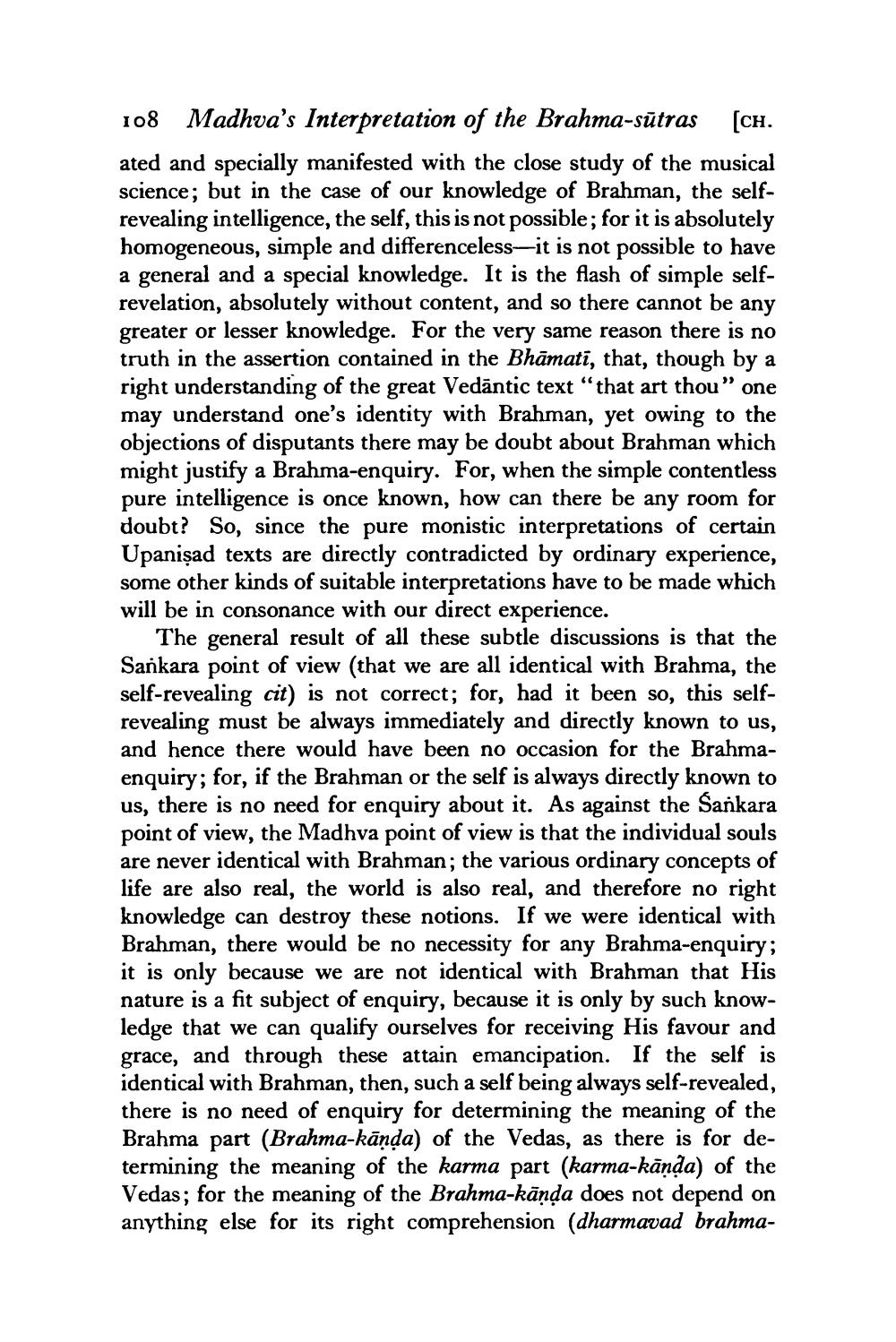________________
108 Madhva's Interpretation of the Brahma-sūtras (ch. ated and specially manifested with the close study of the musical science; but in the case of our knowledge of Brahman, the selfrevealing intelligence, the self, this is not possible; for it is absolutely homogeneous, simple and differenceless—it is not possible to have a general and a special knowledge. It is the flash of simple selfrevelation, absolutely without content, and so there cannot be any greater or lesser knowledge. For the very same reason there is no truth in the assertion contained in the Bhāmatī, that, though by a right understanding of the great Vedāntic text “that art thou” one may understand one's identity with Brahman, yet owing to the objections of disputants there may be doubt about Brahman which might justify a Brahma-enquiry. For, when the simple contentless pure intelligence is once known, how can there be any room for doubt? So, since the pure monistic interpretations of certain Upanişad texts are directly contradicted by ordinary experience, some other kinds of suitable interpretations have to be made which will be in consonance with our direct experience.
The general result of all these subtle discussions is that the Sankara point of view (that we are all identical with Brahma, the self-revealing cit) is not correct; for, had it been so, this selfrevealing must be always immediately and directly known to us, and hence there would have been no occasion for the Brahmaenquiry; for, if the Brahman or the self is always directly known to us, there is no need for enquiry about it. As against the Sankara point of view, the Madhva point of view is that the individual souls are never identical with Brahman; the various ordinary concepts of life are also real, the world is also real, and therefore no right knowledge can destroy these notions. If we were identical with Brahman, there would be no necessity for any Brahma-enquiry; it is only because we are not identical with Brahman that His nature is a fit subject of enquiry, because it is only by such knowledge that we can qualify ourselves for receiving His favour and grace, and through these attain emancipation. If the self is identical with Brahman, then, such a self being always self-revealed, there is no need of enquiry for determining the meaning of the Brahma part (Brahma-kānda) of the Vedas, as there is for determining the meaning of the karma part (karma-kānda) of the Vedas; for the meaning of the Brahma-kānda does not depend on anything else for its right comprehension (dharmavad brahma




